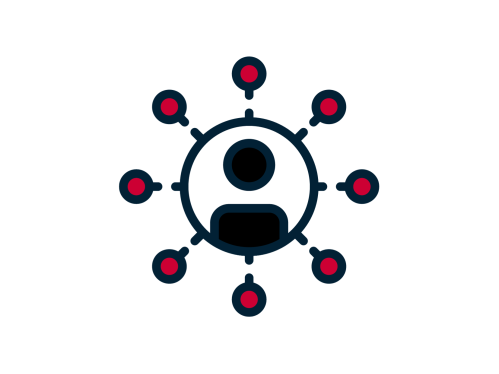Goal Setting Resources
S.M.A.R.T. Goals
Once you have delineated a vision of where you want to be in one year from now, one of the best ways to achieve your vision is to first identify what are your S.M.A.R.T. goals and then come up with an action plan or steps to achieve them.
S.M.A.R.T. goals are:
Specific: What will I accomplish? Does it target a specific area for improvement?
Measurable: How will I know when it is done? How am I measuring my success for this particular goal?
Achievable: Is the goal reasonable enough to be accomplished? Do I have control/influence over it?
Relevant and Realistic: Is this goal relevant to my life or career right now? Can I do this? What would I need to accomplish this? Do I need more resources, identifying a mosaic of mentors?
Time-bound: What is a realistic deadline? I will complete this goal by month/date/year. Knowing there’s an end in sight will help you focus and push yourself.
For detailed instructions on how to write your S.M.A.R.T. goals, download this pdf document.
If you need assistance in drafting your S.M.A.R.T. Goals, contact us (opa@oq.rutgers.edu) to schedule a 1:1 session to help you.

Mosaic of Mentors Map
The concept of Mosaic of Mentors stems from the fact that we all need different kinds of support for different aspects of our careers and lives and one individual cannot alone fulfill all the mentoring support that other individual needs. Using a mosaic of mentors map provides a framework for mentoring and empowers postdocs to develop their own mentoring network comprised of multiple individuals. As a result, the postdoc mentee is trained to be proactive, take ownership, and drive the mentoring relationships.
We highly recommend that postdocs identify areas or skills they need help with or to improve and to seek a wider range of support, for example from their peers, colleagues, or other faculty members to develop a Mosaic of Mentors map.
If you need assistance in developing your Mosaic of Mentors map, contact us (opa@oq.rutgers.edu) to schedule a 1:1 session to help you.



Your Career On Track
The Office of Postdoctoral Advancement hosts an annual signature event, Your Career on Track, a 2-day workshop that introduces postdocs to SMART goals and the individual development plan (IDP) and helps postdocs navigate how to create a support network of mentors to help them stay on track and maximize their postdoc journeys. On day 1, breakout activities will allow participants to start defining and setting their SMART goals and creating a support network of mentors to support them in the areas they need help with. Day 2 breakout activities will give participants the chance to work on their IDPs and identify the next steps for staying on track and accomplishing their career goals.

Rutgers Individual Development Plan
The Individual Development Plan (IDP) is a career tool to help you set intentional goals and take charge of your success. The Office of Postdoctoral Advancement, with support from the Executive Steering Committee, strongly encourages postdocs to complete an IDP with their mentors. The Rutgers Postdoc IDP, updated in April 2024, builds on proven IDP models and has been approved by the Office of Postdoctoral Advancement and Rutgers Health Office of Postdoctoral Affairs.
-
- Set career and professional goals, making your postdoctoral training more intentional, productive, and allowing you to track your progress.
- Clearly outline your and your mentor's expectations from the beginning of your postdoctoral training to establish mutual understanding and clear communication.
- Improve your core competencies and keep you on track with your career and professional goals.
-
- AAAS myIDP: Complete this within the first 6 months of your appointment. It’s a one-time requirement and provides valuable resources.
-
- Rutgers IDP: Complete annually, starting at month 12 of your appointment. Fill out the form first, then have your faculty advisor do the same. If you are a Rutgers Health biomedical postdoc, show the signed document to your department administrator and upload it to the Rutgers Biomedical Postdoc Professional Development Canvas site. If you have login issues, contact janet.alder@rutgers.edu. Only you and Postdoc Office Leaders can view your completed forms on Canvas.
- Mentoring Committee: We encourage all biomedical and Rutgers Health postdocs to establish a committee with your faculty advisor and two other faculty members. Meet after completing the IDP to discuss research and career progress. A separate form for the committee is available here. Non-biomedical postdocs at Rutgers Newark, New Brunswick, or Camden interested in creating a mentoring committee can contact Dr. Itzamarie Chévere-Torres for more information.
-
- Complete the Self-Assessment on NPA Core Competencies
While optional, we recommend postdocs complete this self-assessment document for NPA Core Competencies. Revisit this assessment annually. - Complete the Rutgers IDP Form for Humanities & Social Sciences and Share it with Your PI
Postdocs should fill out the Postdoc the Humanities & Social Sciences IDP Form, then share it with their faculty mentor. Use this form to guide your discussion and amend it as needed. The postdoc and faculty mentor should sign it to commit to the goals and expectations.
- Complete the Self-Assessment on NPA Core Competencies
-
- "A Career-Development Plan for Postdocs", Science Careers, October 18, 2002
- "Putting PhDs to Work: Career Planning for Today's Scientist", CBE Life Sciences Education, 2014 Spring;13(1):49-53
- "Yearly Planning Meetings: Individualized Development Plans Aren't Just More Paperwork", Molecular Cell 58, June 4, 2015
- "Use and Effectiveness of the Individual Development Plan Among Postdoctoral Researchers: Findings from a Cross-sectional Study", F1000 Research, July 25, 2018
For a more comprehensive list of related articles, click here.
How to Prioritize Tasks Effectively: Get Things Done

Get in Touch
Office of Postdoctoral Advancement
7 College Avenue, 4th Floor
New Brunswick, NJ 08901
Hours: Monday–Friday, 8:30 a.m. to 4:30 p.m.